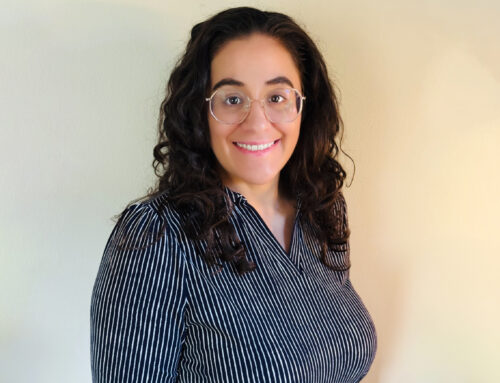Toxic relationships come in many forms – relationships between partners, family members, friends, and employers/employees. Often, however, non-romantic relationships get excluded from conversations of toxicity even though they have a significant emotional impact on your wellbeing.
If you prioritize self-care then evaluating the relationships in your life is a must.
When it comes to toxicity, how can you tell if a relationship is healthy or unhealthy (romantic or not)?
7 Ways to Evaluate a Healthy Relationship
1. Healthy Communication
It’s no surprise that healthy communication makes the list.
What does healthy communication look like?
Conflict is likely to come up if you have someone in your life consistently, but how conflict gets handled can indicate whether a relationship is healthy or not. So when conflict comes up, how do you respond to each other? If upset is expressed to work toward resolution then conflicts can bring you closer together. However, in unhealthy relationships, people often resort to harmful name-calling that often agitates the problem rather than solves it. In healthy relationships, people take the space they need to gather their thoughts and then talk through the problem. In unhealthy relationships, you might give each other the silent treatment.
2. Accountability
Accountability often goes along with healthy communication because it usually comes up when conflict is involved.
When is accountability necessary?
Accountability is a marker of healthy relationships because it means that you or the other person are willing to admit when they have made a mistake or done something harmful. The expectation should never be that neither person will mess up, but rather that WHEN someone messes up they are willing to admit it, apologize, and work toward resolution. In unhealthy relationships, the person will avoid taking responsibility and may even go so far as to assign the blame to you. While each person may have a part to play in a problem, be wary of the people in your life who never seem to take responsibility and instead, make you feel guilty for the role you played or the way you handled the situation.
3. Equal Exchange
Ideally, your relationships are a balance of emotional give and take.
What does balanced support look like?
The BIG thing to look for when identifying if a relationship is balanced is whether or not you feel drained or replenished after spending time with the person. When you are going through a hard time, is the person there to support you, or do they suddenly disappear? Another way to look at is to question how often the other person needs support. A person who isn’t there when you are going through a hard time or a happy time, but needs your support constantly is an example of unequal exchange.
Additionally, if you can’t go to this person when life is going well, then this person may not provide a healthy relationship. People who want the best for you will feel happy when good things happen to you, even if their own life is rocky.
4. Dependability
Healthy relationships consist of two people who can depend on each other, period.
What is dependability?
Sometimes dependability can disguise unhealthy relationships as healthy ones because often unhealthy relationships consist of two people who support each other TOO much. Healthy dependability looks like knowing that if you need the person that they will show up for you. Dependability and equivalent exchange go hand in hand. People you can depend on in a healthy way show up in good times and bad times and they don’t expect a reward from you because they know you would do the same for them. Dependability also has to do with reliability – you know this person won’t flake on you if something better comes along. They have your back and you have theirs.
5. Independence
Independence is a crucial aspect of any healthy relationship. Although it may feel contrary to dependence, independence and dependence go hand in hand.
What does healthy independence look like?
In a healthy relationship, you know the person has your back but you also know that you are capable on your own. You are able to reach out to ask for help, but you also feel comfortable asking for space to take time for yourself. Healthy independence means that the people in your life are not possessive of you and are not threatened by you pursuing your own interests or friendships with other people. In unhealthy relationships, the person will often express jealousy or feel threatened by the other close relationships you have in your life. If you find yourself relying on the person for every little thing and they do the same, then it is probably time to draw some boundaries and incorporate more individual independence.
6. Vulnerability
Another obvious but incredibly important aspect of a healthy relationship is vulnerability.
What does vulnerability mean?
In a healthy relationship, vulnerability means you feel comfortable opening up to the other person because you trust them. The other person holds space for you to express and work through your emotions. They listen and provide comfort. What they do not do is belittle, make fun of, tell you to toughen up, or change the subject to themselves. Part of vulnerability is trust. You feel comfortable confiding in them because you know they won’t tell other people or create drama with the information you share. If there are people in your life who shame you for your feelings or share your confidential information with others, it might be time to take a step back.
7. Growth and Change
As most people know, it is rare to remain stagnant! You will change and grow as you make mistakes and the circumstances around you shift. A marker of an authentic and healthy person is that they cherish and support you, as well as hopefully, grow with you.
How do growth and change show up in relationships?
In a healthy relationship, as you try to better yourself, the people in your life should support you, even if letting go of your bad habits comes at the cost of their personal reflection. For example, if you are looking to give up drinking, something you and another person do together frequently, a healthy friend will cheer you on even if it means letting go of a shared activity. While healthy relationships support you as you grow and change, they also accept you for who you are and don’t FORCE you to change. Change should be inspired from within.
If a relationship no longer fits with who each person is then it’s time to let go. Healthy relationships require honesty and sometimes the honest thing means admitting you have grown apart. That’s part of life.
Check-In

While relationships can be complicated, ask yourself the simple question: how do they make you feel? Healthy relationships are defined by trust, mutual support, respected boundaries and space, non-judgmental communication, and friendly challenge. While it can feel hard to let go of people you care for, it is ultimately unkind to yourself to continue relationships that no longer benefit you.
You might have read through the 7 areas and felt there were ways in which YOU show up as an unhealthy person, that’s okay too! Learning how to show up for ourselves and others is a non-linear process. Reflect. Reevaluate. Don’t be afraid to adjust.
Remember that the people you surround yourself with impact you. Whether that impact is positive or negative is up to you.






